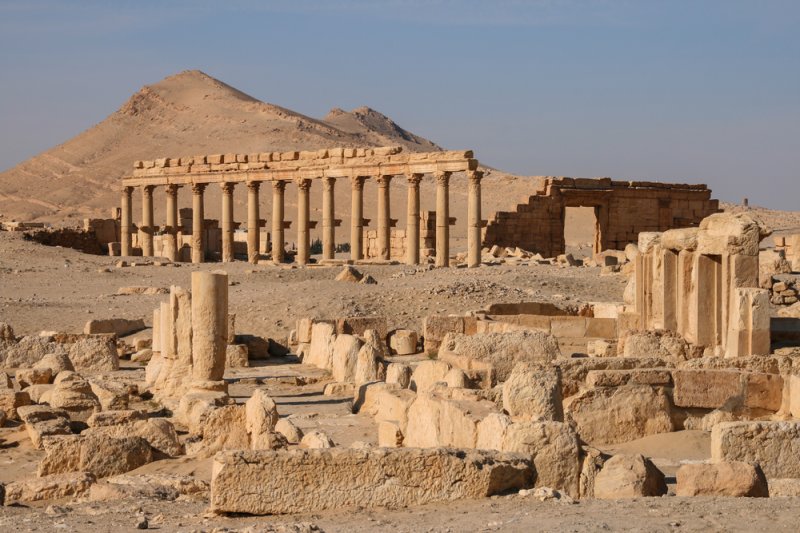1 of 5 | Ancient Aramaic city of Palmyra in the Syrian desert. Photo by Linda Marie Caldwell/UPI
PALMYRA , Syria, Aug. 19 (UPI) -- The Islamic State beheaded a renowned scholar of antiquities in a Palmyra, Syria, public execution, a Syrian news office reported.
The headless body of Khalid al-Asaad, 82, was hung on a column in a public square Tuesday in Palmyra, a town known for archeological ruins and artifacts dating to the Roman era of the third century A.D. and, since May, under control of the Islamic State.
Asaad had worked as Palmyra's Director General of the Palmyra Directorate of Antiquities and Museums for over 50 years, and was regarded as an internationally-respected authority on regional archeology and on Aramaic, the language of the area before Islam took hold in the seventh century A.D.
A sign, placed in front of Asaad's body, indicated IS accusations against him, including loyalty to Syrian President Bashar al-Assad, maintaining contact with senior government officials and management of Palmyra's "idols," the British-based Syrian Observatory for Human Rights said. IS maintains a strict view of Islam, and its strategy includes systematic destruction of what it considers non-Islamic idolatry; it also sells antiquities to collectors to help finance its mission.
Asaad was held in captivity by IS for over a month, and was executed, Chris Doyle of the Council for Arab-British Understanding said, because he refused to divulge the location of various artifacts sought by IS.
"Just imagine that such a scholar who gave such memorable services to the place and to history would be beheaded ... and his corpse still hanging from one of the ancient columns in the center of a square in Palmyra," Syrian state antiquities chief Mamoun Abdulkarim told the British newspaper the Guardian. "The continued presence of these criminals in this city is a curse and bad omen on (Palmyra) and every column and every archaeological piece in it."
Since overtaking Palmyra, IS has planted explosives throughout the ancient city, provoking fears the town, a UNESCO World Heritage site, will be demolished. Similar sites in Iraq, such as Nimrud and Mosul, have been destroyed, bulldozed and dismantled by IS; archeological artifacts have been sold on the black market.















